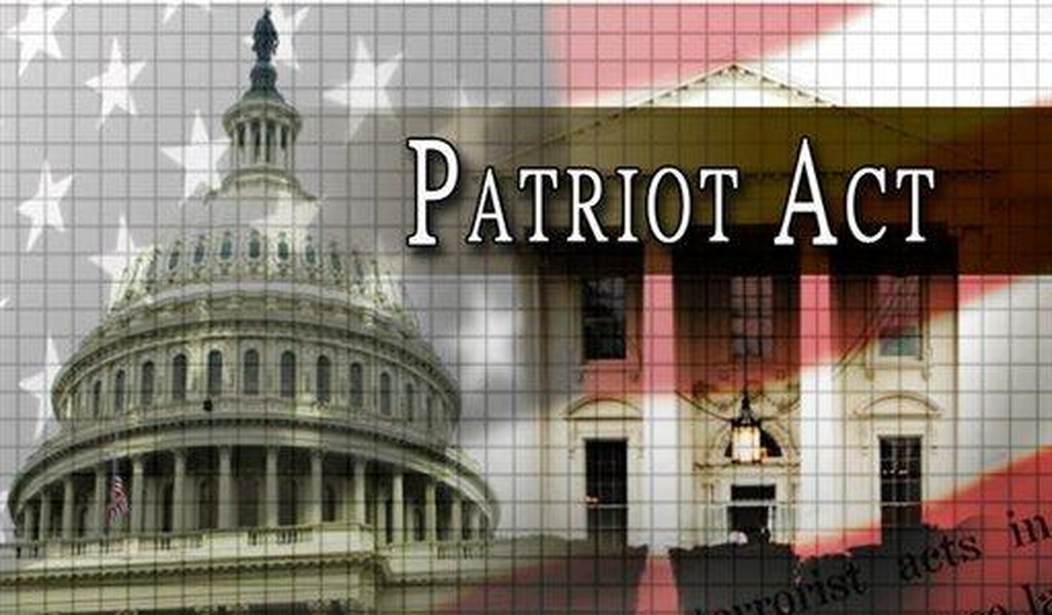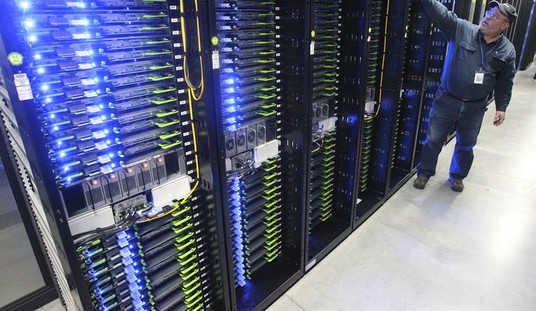In the past few days I have run across two different stories about how the government has been expanding its monitoring of citizens.
The first was a report from the Brennan Center for Justice, a left-leaning non-profit fighting for its vision of the rule of law under the constitution. Many of their issues don’t float my boat, and like the old ACLU, they might infuriate me while also invoking admiration for their consistent stands on the issues that matter to them.
The second was a report in the Wall Street Journal about how an Arizona non-profit set up by the Arizona Attorney General monitors millions of money transfers and shares the data with law enforcement without any legal oversight.
Both pieces highlight the expansion of the surveillance state in the US, and how “innovate” the government can get when circumventing constitutional limits on the surveillance of Americans.
The Brennan Center report focuses on the problem with “fusion centers,” which were set up after 9/11 to facilitate the sharing of information among state and local governments about potential threats. As with all such agencies and organizations, the initial idea sounds benign and even worthy of support. The reality is often much different.
Highlighting the problem was a court case.
A federal jury awarded $300,000 this month to a Maine State Police trooper who was demoted after blowing the whistle on privacy violations at the state’s intelligence fusion center. The federal government spurred the development of fusion centers after 9/11 as a means for sharing counterterrorism intelligence among state and local governments, as well as select private entities. The facts revealed during this trial adds to a mountain of evidence that fusion centers require greater regulation and oversight.
The trooper alleged that the Maine Intelligence and Analysis Center, 1 in a network of 80 fusion centers operating across the country, was illegally collecting and sharing information about Maine residents who weren’t suspected of criminal activity. They included gun purchasers, people protesting the construction of a new power transmission line, the employees of a peacebuilding summer camp for teenagers, and even people who travelled to New York City frequently. The whistleblower also claimed that fusion center supervisors pressured him to illegally share sensitive FBI information he had access to because of his position on the Joint Terrorism Task Force.
The Fourth Amendment, as traditionally understood, prevents the government from monitoring you unless it has some suspicion that you are doing something illegal. While it is not the case that your privacy is inviolable unless you are being investigated for a crime–there are gradations between absolute privacy and direct search and seizure–it is generally understood that the state doesn’t collect and disseminate information in vast amounts based upon no prior suspicion, which is what happened here.
Traveling to New York City, for instance, does not make you a suspect to be monitored.
As detailed in a new Brennan Center report, the whistleblower complaint was far from the first indication that fusion centers posed risks to Americans’ civil liberties and privacy rights. Civil liberties groups raised concerns as the network was being built without proper regulations or independent oversight. Leaked fusion center reports revealed improper monitoring of Muslim Americans and protesters from across the political spectrum, even as the centers expanded their missions beyond counterterrorism to “all crimes” and “all hazards.”
A 2012 investigation by the Senate Homeland Security and Governmental Affairs Committee found that fusion centers “forwarded ‘intelligence’ of uneven quality — sometimes shoddy, rarely timely, sometimes endangering citizens’ civil liberties and Privacy Act protections, occasionally taken from already-published public sources, and more often than not unrelated to terrorism.” Significantly, the committee found fusion centers had failed to produce actionable counterterrorism intelligence.
But the federal government continued to support fusion centers and implemented few reforms. Though fusion centers are operated by state and local governments, the Department of Homeland Security and Department of Justice provide funding, access to federal intelligence systems, and assigned personnel from the FBI and DHS.
In many ways, this mirrors the early efforts called “Total Information Awareness,” which was implemented post-9/11 and quickly defunded, although much of its components live on in other forms. The idea is that if you can gather enough information you can predict behavior and prevent crime and/or terrorism.
The Arizona program is similar in nature, although in some ways more nefarious because it is technically outside government oversight. As is often the case now, Attorneys General can sue businesses (think tobacco companies), and leverage the lawsuits to bring settlements that the AGs design and implement.
Often, as with the tobacco settlements, money is involved and the AG basically gets to spend the money as they see fit, usually in the guise of setting up non-profits or distributing monies to the charities they choose for the purposes they choose. It is a great way for an AG to set policy and establish programs without going through the legislature. Political and monetary fortunes can be made this way, using the power of the state to accomplish personal goals using third parties.
That happened here, with the Arizona Attorney General suing Western Union and obtaining a settlement that set up the Transaction Record Analysis Center, which is technically a non-profit that has access to all money transfers and analyzes them:
Hundreds of federal, state and local U.S. law-enforcement agencies have access without court oversight to a database of more than 150 million money transfers between people in the U.S. and in more than 20 countries, according to internal program documents and an investigation by Sen. Ron Wyden.
The database, housed at a little-known nonprofit called the Transaction Record Analysis Center, or TRAC, was set up by the Arizona state attorney general’s office in 2014 as part of a settlement reached with Western Union to combat cross-border trafficking of drugs and people from Mexico. It has since expanded to allow officials of more than 600 law-enforcement entities—from federal agencies such as the Federal Bureau of Investigation, the Drug Enforcement Administration, and Immigration and Customs Enforcement to small-town police departments in nearly every state—to monitor the flow of funds through money services between the U.S. and countries around the world.
TRAC’s data includes the full names of the sender and recipient as well as the transaction amount. Rich Lebel, TRAC’s director, said the program has directly resulted in hundreds of leads and busts involving drug cartels and other criminals seeking to launder money, and has revealed patterns of money flow that help law-enforcement agencies get a broader grasp on smuggling networks.
“It’s a law-enforcement investigative tool,” Mr. Lebel said. “We don’t broadcast it to the world, but we don’t run from or hide from it either.”
Again, it’s nice that they can track cartel money, but they can do it because they can track all money transfers and find out everything about everybody, not specific things about specific people, as the 4th Amendment intends.
As it stands, pretty much anybody in local, stand and federal government can track money transfers by wire by whomever and whenever they so choose, regardless of whether they are suspected of a crime. This means that if for some reason a person gets on the radar screen of law enforcement for any reason, they can root around in your money transfer records looking for something they can use.
As Levrentiy Beria said, “show me the man and I will show you the crime.”
Obviously, law enforcement needs tools to find potential terrorists, but just as obviously those tools shouldn’t be so broad that everybody gets caught up in a dragnet.
Not to mention that law enforcement seems utterly incapable of doing anything with the data they already have. Most of the people involved in recent acts of mass violence were already on law enforcement’s radar.
We’ve gone way too far down the path of a police state. Programs like these seem not especially effective in rooting out actual terrorists, but give law enforcement the ability to get leverage on people should they for whatever reason decide they want to harass you.








Join the conversation as a VIP Member